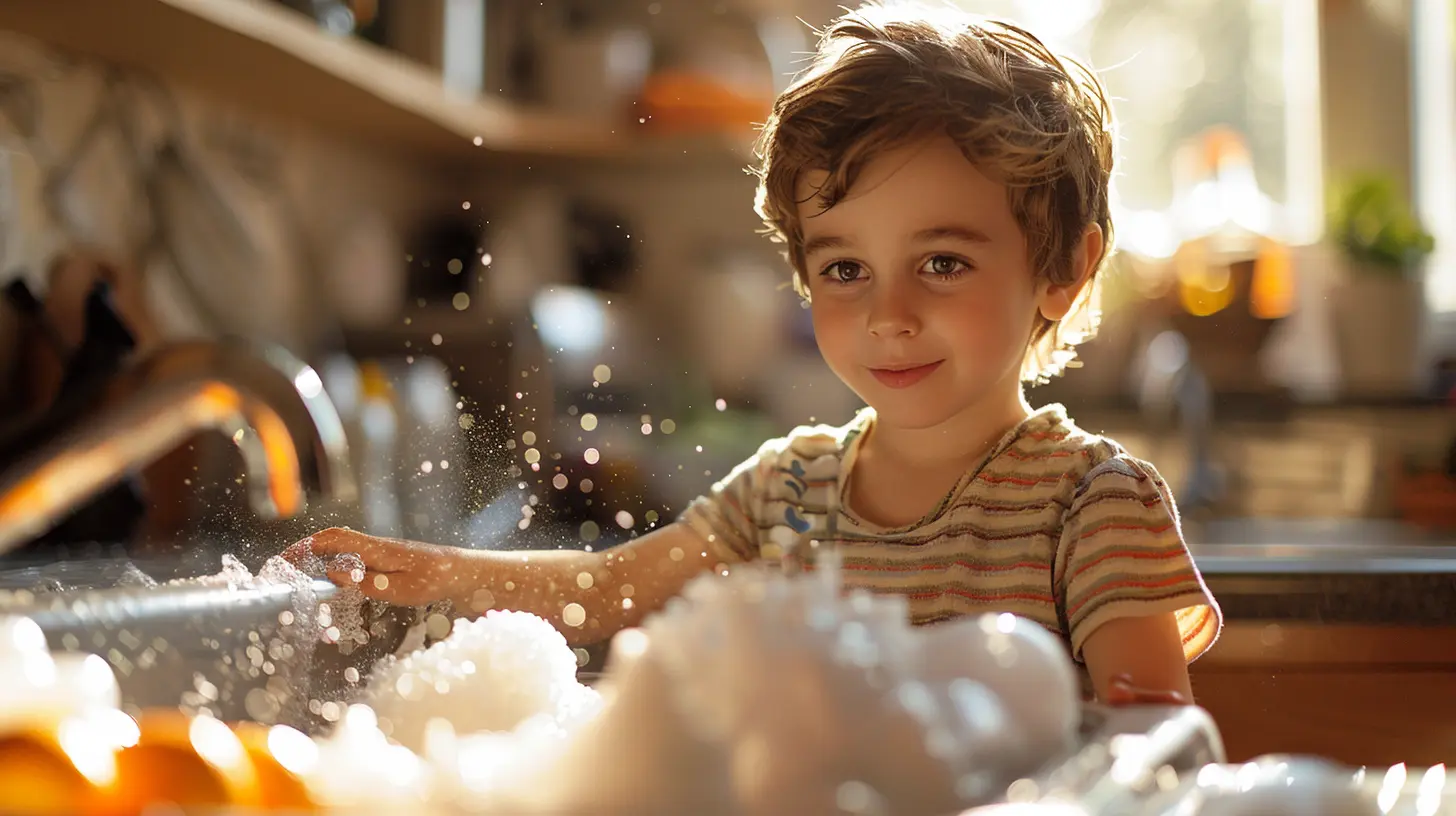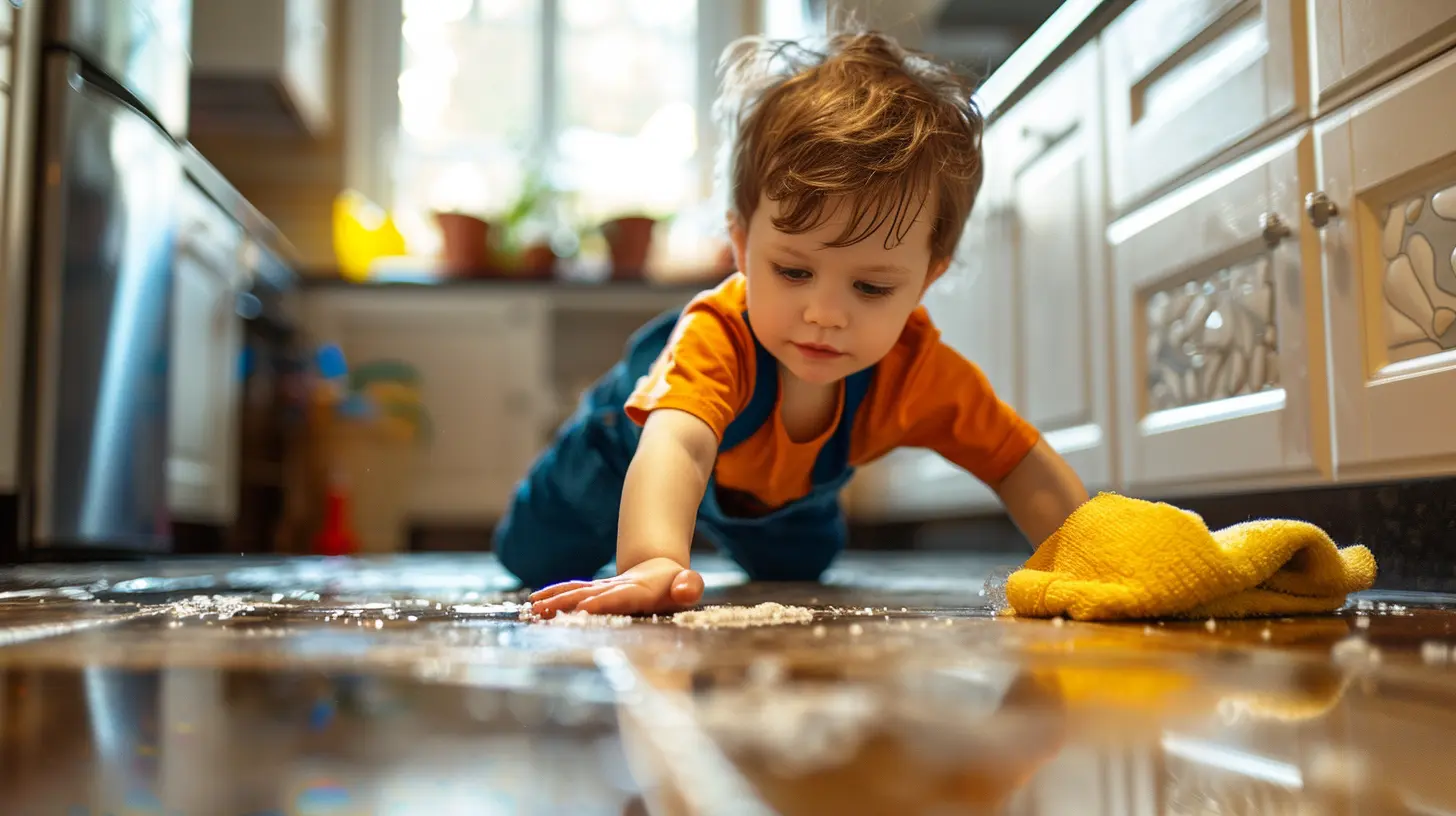How to Teach Kids Responsibility Through Chores
27 May 2025
Responsibility is one of the most important life skills a child can learn. And what better way to teach it than through chores? Some parents shy away from giving their kids household tasks, thinking it’s too much for them, but in reality, chores shape children into responsible, independent, and self-sufficient adults.
If you’ve ever wondered how to get your kids to pitch in—and actually enjoy it—you’re in the right place! Let’s break down how to teach kids responsibility through chores without turning it into a battle. 
Why Chores Matter More Than You Think
Chores aren’t just about keeping the house clean. They teach kids key life skills, from time management to accountability. Here’s a quick rundown of why they’re essential:- Builds a Strong Work Ethic – Kids learn that effort leads to results.
- Teaches Life Skills – Laundry, cooking, and cleaning aren’t just chores; they’re survival skills.
- Encourages Teamwork – Running a household is a group effort, and chores reinforce that concept.
- Boosts Confidence – When kids successfully complete tasks, they feel capable and independent.
- Promotes Time Management – Juggling chores with school and play teaches prioritization.
Sounds great, right? But how do you get kids on board without endless whining? 
Choosing Age-Appropriate Chores
Not all chores are created equal. Giving a toddler the job of washing dishes is a disaster waiting to happen, but setting the dinner table? That’s doable! Here's a breakdown of chores by age group:Toddlers (Ages 2-4)
At this age, kids love to imitate adults. Give them simple, fun tasks that make them feel like they’re ‘helping’ while actually learning responsibility.- Picking up toys
- Putting dirty clothes in the laundry basket
- Wiping up spills with a cloth
- Helping feed pets
- Placing napkins on the table
Preschoolers (Ages 4-6)
Preschoolers have better coordination and can handle slightly bigger tasks. They thrive on praise, so make chores feel like a game!- Making their bed (it won’t be perfect, and that’s okay)
- Watering plants
- Sorting laundry by color
- Setting the table
- Helping put away groceries
Elementary Kids (Ages 7-10)
This is the golden age for instilling responsibility. They’re capable of more, and they actually enjoy feeling helpful—if you make it fun.- Sweeping floors
- Folding laundry
- Washing easy-to-clean dishes
- Feeding and walking pets
- Taking out the trash
Tweens (Ages 11-13)
At this stage, kids can handle more complex tasks and should start managing chores independently.- Cooking simple meals
- Vacuuming and mopping
- Cleaning their room thoroughly
- Washing the family car
- Babysitting younger siblings for short periods
Teens (Ages 14 and Up)
Teenagers should be preparing for adulthood, meaning their chores should mimic real-world responsibilities.- Doing laundry
- Grocery shopping with a list
- Preparing family meals
- Managing their schedules and responsibilities without reminders
- Yard work and home maintenance tasks
The key here is progression—start small and build up their responsibilities as they grow. 
How to Make Chores a Positive Experience
It’s no secret: Kids resist chores when they see them as boring or punishment. So, how do you shift their mindset?1. Make Chores a Routine, Not a Punishment
If chores only show up as a consequence of bad behavior, kids will see them as negative. Instead, incorporate them into daily life so they become as normal as brushing their teeth.2. Give Them Choices
Want to avoid rebellion? Let kids choose their chores from a list. It gives them a sense of control, making them more willing to participate.3. Use a Reward System (But Be Smart About It)
Yes, rewards work—when used wisely. Instead of paying for every chore, offer privileges (extra screen time, a later bedtime) or use a point system where they can ‘earn’ something fun. Avoid turning every task into a transaction, though, or they’ll expect payment for basic responsibilities.4. Chore Charts Work Wonders
A visual reminder of completed chores can be surprisingly motivating. Whether it’s a sticker chart for younger kids or an app for teens, keeping track of progress makes chores more engaging.5. Lead by Example
Kids mimic what they see. If they see YOU doing chores without groaning, complaining, or cutting corners, they’ll learn that chores are just part of life—not a dreaded obligation.6. Make It Fun!
Who says chores have to be boring? Turn on a dance playlist and have a 10-minute clean-up race. Time tasks to see who finishes first. Play "pretend restaurant" when setting the table. Creativity makes all the difference!
Overcoming Common Chore Challenges
Let’s face it: Getting kids to embrace chores isn’t always smooth sailing. Here’s how to tackle common roadblocks."But I Don’t Want To!"
This is the classic protest. Acknowledge their feelings but stand firm:> "I get it—chores aren’t always fun. But we all pitch in to keep our home nice. Let’s do it together, and then we can play!"
They Do a Sloppy Job on Purpose
Ah, the old "If I do it badly, maybe they won’t ask me again" trick. Don’t fall for it! Instead of redoing their work, show them how to do it right and have them fix mistakes.Forgetting to Do Chores
Rather than nagging, set up reminders or a chore calendar. Making it visual or tying chores to a routine (e.g., "After dinner, we clear the table") helps with consistency.Siblings Fighting Over Chores
Rotate responsibilities weekly to keep things fair. If they argue, let them negotiate who does what—problem-solving is another valuable skill!The Long-Term Benefits of Teaching Responsibility
When kids learn responsibility early, they carry it into adulthood. By the time they leave home, they’ll know how to cook a meal, keep a space clean, and manage their time—all thanks to those childhood chores.Beyond the practical side, chores teach discipline, teamwork, and perseverance—qualities that shape successful adults.
And let’s be honest… wouldn’t it be nice if you didn’t have to do everything yourself?
Final Thoughts
Teaching kids responsibility through chores isn’t about turning them into mini housekeepers—it’s about preparing them for real life. With the right approach, chores become less of a battle and more of a shared experience that builds valuable life skills.So, next time your child groans about taking out the trash, remind them: Every small task is a step toward becoming a capable, confident adult. And that alone makes it worth it.
all images in this post were generated using AI tools
Category:
Kids And ChoresAuthor:

Maya Underwood
Discussion
rate this article
3 comments
Brooks Long
Empower through chores, inspire future leaders!
June 21, 2025 at 3:16 AM

Maya Underwood
Absolutely! Chores are a fantastic way to instill responsibility and leadership skills in children, setting the foundation for their future success.
Tyler McAlister
Empowering children with responsibilities through chores not only cultivates their independence but also nurtures essential life skills. By participating in household tasks, kids learn accountability, teamwork, and the value of contributing to their environment.
June 3, 2025 at 4:54 AM

Maya Underwood
Thank you for your insightful comment! Indeed, chores are a powerful tool for fostering independence and life skills in children. They not only learn responsibility but also the importance of teamwork and contributing to the household.
Yasmine McDougal
Teaching kids responsibility through chores not only fosters essential life skills but also instills a sense of accomplishment and teamwork. Embrace the journey together, celebrating small victories while nurturing independence and accountability in your children.
May 28, 2025 at 3:59 AM

Maya Underwood
Absolutely! Chores provide a valuable opportunity for kids to learn responsibility, teamwork, and independence, while fostering a sense of achievement. Embracing this journey together can lead to lasting life skills.



